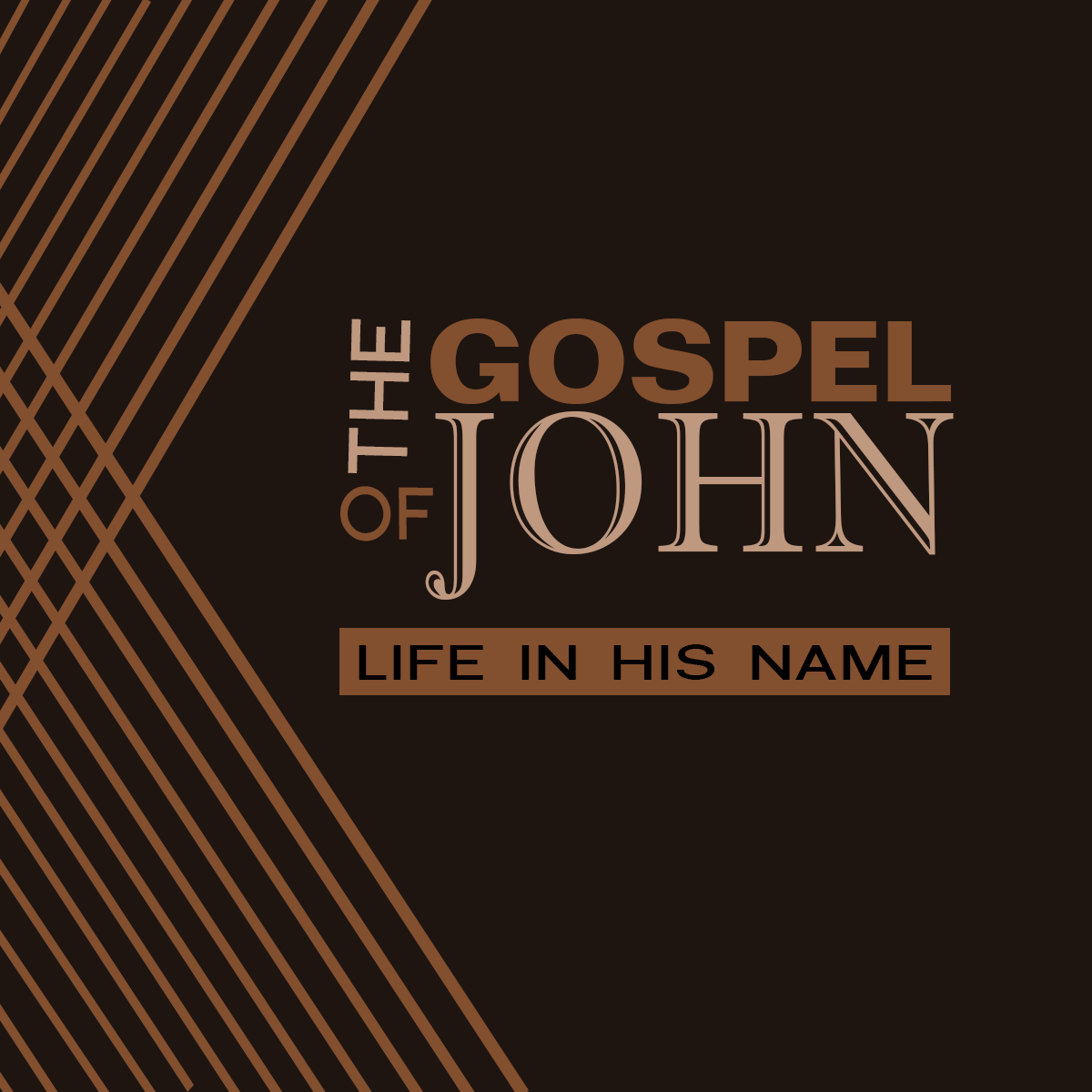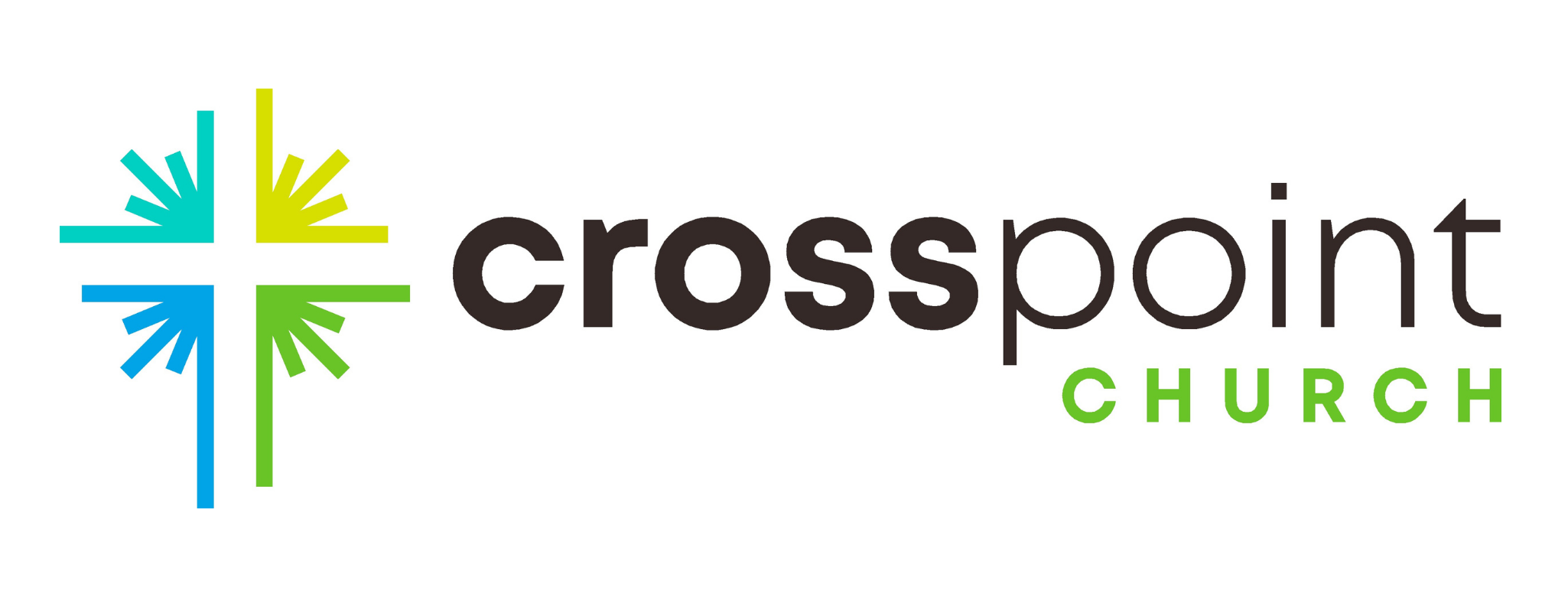
That You May Believe
Life in His Name – Part 53
That You May Believe - The Gospel of John
Crosspoint – Dave Spooner – March 31st, 2024
Intro:
- We have spent a year in the Gospel of John, mining its riches and growing in our understanding of Jesus—who He is, what He does, and what this means for us. This was John the Apostle’s intent for writing this book:
John 20:31 ESV
These are written so that you may believe that Jesus is the Christ, the Son of God, and that by believing you may have life in His name.
- This book was written so that you may believe. The Greek word for believe (pisteuo) is used 98 times in the Gospel of John. And what is meant by it is to trust or rely upon. This is not believing the facts about Jesus or believing that He was a historical person, but to trust Him and rely upon Him. So, who is Jesus? And why should we entrust ourselves to Him, to rely on Him, and believe that we can have life in His name?
- This is an incredible claim and promise; if it is true, there is nothing more important for us to do, and there is no one as important as Jesus. John sets the evidence before us and tells the story of Jesus so that we can know what Jesus taught, who He claimed to be, and how He proved these claims through His actions. Here are seven things Jesus claimed about His identity, which John recorded in his Gospel.
What Jesus said about His identity
- When Jesus said, “I AM” (ego eimi), He was identifying with the name of God. God first revealed His name to Moses when He manifested Himself as fire from a bush. Moses asked God what His name was, and God answered, “I AM, WHO I AM” and told Moses to tell His people that “I AM had sent him” (Exod. 3:13-14, see also Isaiah 41:4, 43:10, 48:12).
- John included seven stories where at key moments Jesus simply states “I AM,” connecting Himself to this name (see John, 4:26, 6:20, 8:24, 8:28, 8:58, 13:19, 18:5). Perhaps the most striking instance was when the religious leaders were questioning Jesus, and they asked Him, “Do you think you are greater than our father Abraham?” Jesus responded, “Before Abraham, was, I AM” (John 8:48-59).
- John also records seven significant claims Jesus made about His identity, specifically and intentionally connected to the ways that God revealed Himself to His people in the Old Testament. Jesus, in saying these things and making these claims, was declaring His true identity as the Christ, the Son of God.
- Jesus said, "I AM the Bread of Life" (John 6:35, 48)
- In the Old Testament: God provided bread from heaven, manna, for the Israelites to sustain them in the wilderness so they could live (Ex. 16).
- In Jesus: He is the bread from heaven, the Bread of Life who satisfies and sustains His children so we can live eternally (John 6: 33, 47, 50-51, 58).
- Jesus said, "I AM the Light of the world" (John 8:12)
- In the Old Testament: God led the Israelites at night in a pillar of fire, giving sight for direction and protection. By this light, they could see all things (Ex. 13:21-22).
- In Jesus: He is The Light of the World, which gives spiritual sight for direction and protection. By His light, we can see all things (John 8:12, 9:4, 35-39).
- Jesus said, "I AM the Door of the sheep" (John 10:7, 9)
- In the Old Testament: God provided the door of righteousness, the door of the Lord, it was the only way to enter into God’s House and His presence (Psalm 118:17-24).
- In Jesus: He is the door of righteousness, the door of the Lord, and through Him is the only way we enter into God’s house and presence (John 10:9-10).
- Jesus said, "I AM the Good Shepherd" (John 10:11, 14)
- In the Old Testament: God is the only one qualified to be a Good Shepherd for His flock, and He takes care of them (Ezek. 34:1-31, Psalm 23).
- In Jesus: He is the Good Shepherd who calls His sheep by name, who loves us, cares for us, and lays His life down for us (John 10:1-18).
- Jesus said, "I AM the Resurrection and the Life" (John 11:25)
- In the Old Testament: God is the only one who gives life and who can bring the dead back to life (Ezek. 37:1-14, Isaiah 26:19).
- In Jesus: He is the one who gives life and can bring us back to life. If we believe in Him, even though we die, we will live (John 11: 25-26).
- Jesus said, "I AM the Way, the Truth, and the Life" (John 14:6)
- In the Old Testament: God teaches the way, reveals the truth, and rescues His children from death (Psalm 86:11-13).
- In Jesus: He is the way we should walk. He is the truth revealed, and He is Life. Through Him we receive life eternal. If we know Him, we know the Father (John 14:1-7).
- Jesus said, "I AM the True Vine" (John 15:1, 5)
- In the Old Testament: God promised that His true vine and His vineyard will fill the whole world with fruit (Isaiah 27:2-8).
- In Jesus: He is the True Vine, and we are His branches through which He brings His fruit to the whole world (John 15:1-8).
- Hopefully, you see in these statements what Jesus was claiming from their Old Testament context that He is all these things because He is God incarnate, the Christ, the Second Person of the Trinity, the Son of God.
- To further identify Himself as God, He proved that He was God by doing only what God could do. In his gospel, John shares seven stories or “signs” that Jesus performed, each providing proof of His identity.
What Jesus did to prove His identity
- Jesus turned water into wine (John 2:1-11)
- God in the Old Testament: By His will, God changes one thing into another thing. He changed dust into a human being (Gen. 2:7), a staff into a snake (Ex. 4:4), water into blood, (Ex. 7:20) dirt into gnats (Ex. 8:16), and dew into manna (Ex. 16:15).
- Jesus in the New Testament: By His will, Jesus changes one thing into another thing. Jesus did what only God could do.
- Jesus healed the official's son (John 4:46-54)
- God in the Old Testament: God “sent out His word and healed them and delivered them from their destruction” (Psalm 107:21).
- Jesus in the New Testament: Jesus sent out His word and healed them and delivered them from their destruction. Jesus did what only God could do.
- Jesus healed the paralytic at Bethesda (John 5:1-15)
- God in the Old Testament: God restores the incurable to stand before Him (Jer. 18:15-19).
- Jesus in the New Testament: Jesus restores the incurable to stand before Him. Jesus did what only God could do.
- Jesus fed the 5,000 (John 6:1-14)
- God in the Old Testament: God multiplied food to feed a crowd (2 Kings 4:42-44).
- Jesus in the New Testament: Jesus multiplied food to feed a crowd. Jesus did what only God could do.
- Jesus walked on water (John 6:16-24)
- God in the Old Testament: God “treads on the waves of the sea” (Job 1:8).
- Jesus in the New Testament: Jesus treads on the waves of the sea. Jesus did what only God could do.
- Jesus healed the man born blind (John 9:1-41)
- God in the Old Testament: God opens the eyes of the blind (Isa. 35:5)
- Jesus in the New Testament: Jesus opens the eyes of the blind. Jesus did what only God could do.
- Jesus raised Lazarus from the dead (John 11:1-44)
- God in the Old Testament: God is able to raise the dead (Isa. 26:19, 1 Kings 17:17-24).
- Jesus in the New Testament: Jesus raises the dead. Jesus did what only God could do.
- Not only did Jesus perform these “signs” in the presence of witnesses, but Jesus also said that He would be resurrected from the dead (John 2:22, 12:20-30,16:16, 20:9). The greatest miracle was not something that Jesus did, but what God the Father did to Jesus. Jesus was resurrected from the dead, just like Jesus said He would be. Indeed, He is the Resurrection and the Life, and all who trust in Him will have eternal life.
- So here is the question I have for you, do you believe?
Do you believe?
- Do you believe that Jesus is the Christ, the Son of God? Do you believe that you may have life in His name? Do you believe that Jesus paid the debt of your sin so you can enter the kingdom of God? Do you treasure Him above all things? Have you made it your aim to love Him, serve Him, and follow Him?
- Our prayer is that the seed of the Gospel be planted in the soil of your soul and that it will bear fruit in your life to the glory of God. If you are new with us this Sunday, this is a great place to grow in your faith, be connected to the greater family of God, and be equipped to use your gifts and ability to honor God.
- Pray
Conclusion with Baptism
- Today, we will celebrate with several who have committed themselves to Christ for the forgiveness of their sins and to have new lives in Him. Baptism is a public confession of faith and a symbolic representation of being buried and resurrected in Christ.
- Those being baptized will share the reason they are choosing to do so today.
Benediction
Questions for Growth Groups
- Which of the seven “I AM” statements is the most meaningful to you?
- How do the seven “signs” of Jesus affect your understanding of who Jesus is?
- Do you believe in Jesus for the forgiveness of your sins for new life in Him?
- Do you treasure Him above all things, and how do you know if this is true?
- How are you growing in your relationship to Christ, and what is He doing in your life now?
